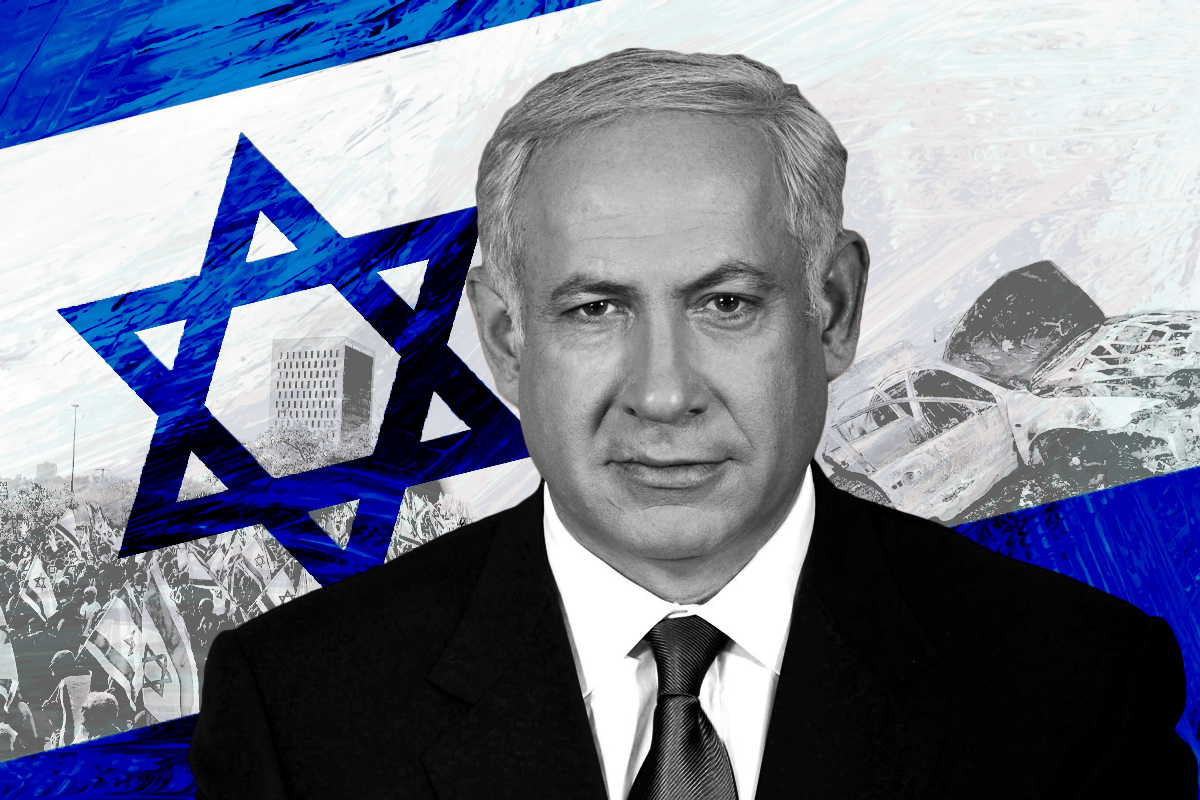
There is much talk in the media about diplomatic pressure being put on the Israeli government by their allies in Washington to avert an escalation of the war in Gaza into a regional conflict. And yet, the whole situation has been moving precisely in the direction of a much wider conflagration, involving several fronts: from the West Bank; to the northern border with Lebanon; to the Houthis in Yemen; and bombings in Syria, Iraq and Pakistan, also involving Iran. The latest US/UK bombing of the Houthis highlights this risk.
But there is another, domestic front, where Israel is facing a crisis unprecedented in its 76-year history. Past wars have generally been fairly short and sharp operations, with the exception of the 1982-85 conflict in Lebanon. We are now well over 100 days into the present war, and it is expected to last for some time. And yet, despite the immense death and destruction inflicted on the Palestinian people, Netanyahu is nowhere near achieving his stated aims.
The devastation in Gaza is there for all to see – and it is intensifying in and around Khan Younis as we publish this article, with similar scenes to those witnessed in the bombing of Gaza City, including the threats to hospitals and closing of escape routes for civilians. The number of people killed, the level of destruction and the numbers displaced are without precedent in the decades-old Israeli-Palestinian conflict, and Israeli officials say the fighting is likely to continue for several more months.
The real death toll in Gaza has certainly passed well over the 30,000 mark, with over 26,000 officially reported deaths and a further 7,000 missing, buried under the rubble. Two thirds of the victims are women and children. A further 63,000 people have been wounded, while more than 1.9 million have been internally displaced, or 85 percent of the total population.
According to a recent article in The Guardian: “[A]bout 65,000 residential units have been destroyed or rendered uninhabitable. Another 290,000 have been damaged. That means that about half a million people have no home to return to.”
It is not just housing that has been affected. 23 of Gaza’s 36 hospitals have been destroyed, while over 100 schools have suffered severe damage. The water supply, sewage and energy distribution networks have been severely damaged. Infrastructure has been reduced to rubble and unexploded ordnance and shells litter the ground everywhere.
Even where this or that house has been left standing, it doesn’t mean they are fit for habitation. There has been a massive increase in cases of diarrhoea affecting children. The situation has led the World Health Organisation to sound the alarm that more people could die in Gaza from disease than from Israel’s bombings. And now UN officials have stated that one quarter of the population is actually starving.
Netanyahu failing in his objectives
And yet, despite all this, Netanyahu is very far from achieving his goal, which is that of destroying Hamas as a fighting force. The Israeli military claims to have killed around 9,000 Hamas fighters. Prior to this war, estimates of the numbers of fighters available to Hamas and the Palestinian Islamic Jihad (PIJ) in the Gaza Strip varied from 40,000 to 50,000.
Therefore, as things stand, there is still a significant fighting force embedded in Gaza, not to mention the important support Hamas has gained in the West Bank, East Jerusalem and across the Palestinian refugee camps as a result of the brutality of Israel’s genocidal war in Gaza.
Destroying this force would require many months of a drawn-out, systematic, house-by-house, tunnel-by-tunnel, street-by-street, urban war. So far, the Israeli army has lost over 200 soldiers in the fighting in Gaza according to the latest IDF figures, with over 1,000 injured. To achieve Netanyahu’s aims, many more would be lost, and the recent killing of 21 soldiers in a single incident (where their own mines, laid to destroy Palestinian homes, were detonated by a lucky RPG shot) confirms this perspective very clearly.
Now, some top Israeli officials have been saying that the two goals – destroying Hamas and freeing the hostages – are mutually exclusive. The hostages, in fact, seem to be the last thing on Netanyahu’s list of priorities. But to appease public opinion at home, he has continued to issue promises of rescuing them and bringing them home.
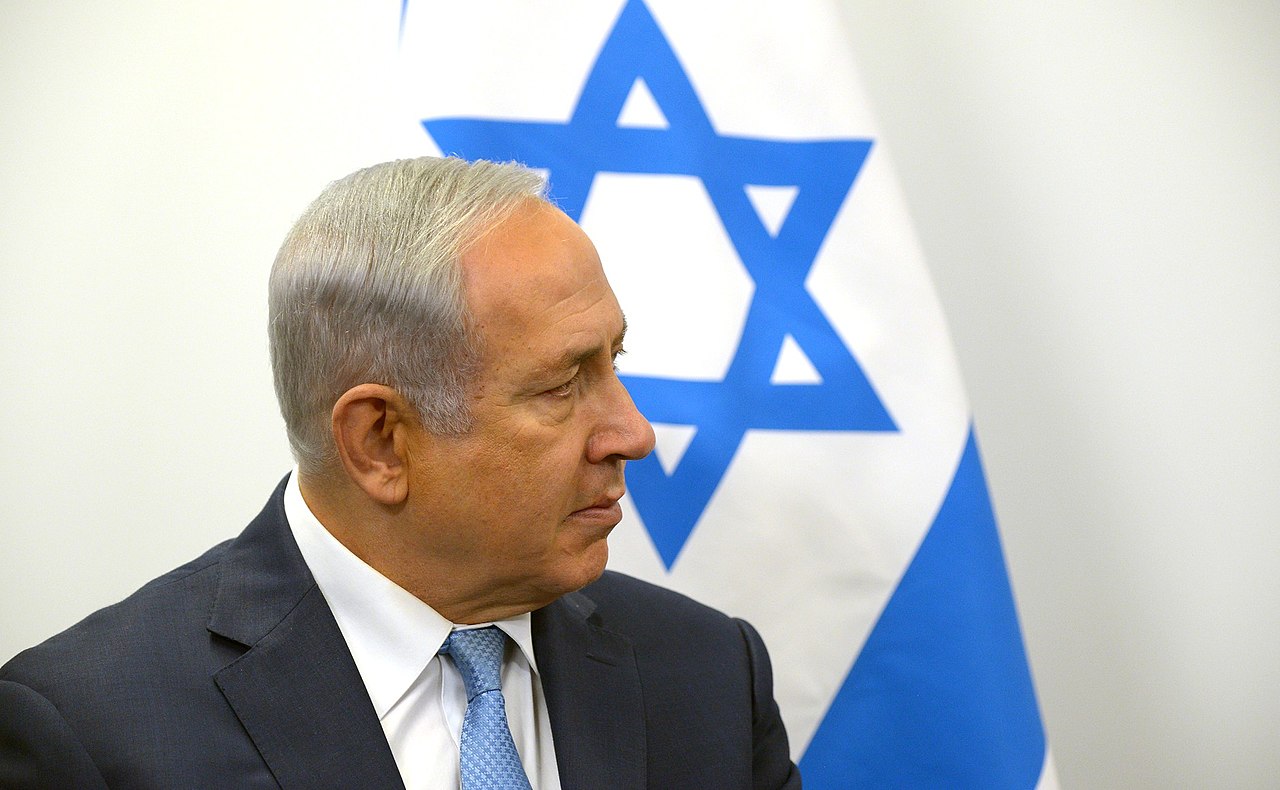
Wikimedia Commons
Understandably, the main concern of the families of the hostages is to see their relatives returned home alive. Their anger at Netanyahu’s apparent lack of concern was graphically illustrated by a dramatic scene of relatives of hostages storming a Knesset finance committee meeting on Monday, shouting at those present in the meeting to concentrate on freeing the hostages.
The families of the hostages are in fact an embarrassment to Netanyahu, as they organise demonstrations outside his private home. The fact that at least 27 of the hostages taken on 7 October are reported to have died under Israeli bombardment, and that three were killed by Israeli soldiers while waving a white flag, adds force to the demands of the families for at least a temporary pause to allow negotiations to proceed.
The families are demanding that a deal be reached, even if this means a lengthy interruption to the fighting, a withdrawal of troops and the release of Palestinian prisoners. The government is under immense pressure on this question, with internal divisions openly being discussed.
According to an Axios news report, there seems to be a proposal on the table for a “pause” in the war that could extend up to a two-month period, allowing for a phased release of the remaining hostages in exchange for the release of a number of Palestinian prisoners held in Israeli jails. Although subsequent reports indicate that very little progress has been made in reaching such a deal, with unnamed state officials claiming the whole story to be “fake” and this has widely been reported on inside Israel.
The sticking point is that Hamas has called for a complete end to the war for such an exchange to take place. The Netanyahu government, on the other hand, is proposing to resume the fighting once the hostages have been released.
Netanyahu continues to maintain his position that a deal that envisages allowing Hamas to stay in control of Gaza is out of the question. This is in line with what they have been saying for the post-war scenario, that the Israeli military would continue to be present and would take overall responsibility for ‘security’.
The “deal” as reported by Axios.com, is a classic example of attempting to square the circle. It puts the Hamas leaders – should they accept such an offer – in a position of giving up the one bargaining chip they still have with no guarantee that the war would be over. If they release all the hostages and the fighting restarts, the devastation would continue. It seems Hamas may be willing to release some of the hostages in exchange for an extended pause, but would only consider releasing all of them if a permanent ceasefire is agreed to, with big international players guaranteeing the agreement.
In order to facilitate a deal of this kind, the proposal seems to include the release of more Palestinian prisoners in a future exchange for the hostages. The problem is that Netanyahu has excluded any commitment to end the war. Up until recently he excluded any lengthy pause, or ceasefire, being concerned that such a scenario could end up with his government having to accept some kind of international agreement, and being unable to recommence the bombing of Gaza. On this line of argument, he has the backing of his far-right friends in the cabinet.
Netanyahu has insisted that the remaining hostages would be rescued by the Israeli army in its war on Gaza. So far, however, the fact remains that of the 110 hostages liberated, only one was freed by Israeli forces. Four were released by Hamas unilaterally and the other 105 were released in a prisoner exchange deal. The hostages that were released were returned home as a result of negotiations, during a pause in the fighting.
Netanyahu has been repeating his mantra that the war will go on until all his objectives have been reached. If he continues on this road, the situation risks escalating into a war that could destabilise all the regimes in the Middle East. At the same time, it is adding to the factors that are presently pushing the world economy downwards into a slump. This has major implications for the imperialist powers both in Europe and in North America. The huge reduction in traffic through the Suez Canal is already having an effect.
The war is hurting Israel’s economy
The divisions that run through the whole of Israeli society came to the surface last year in the huge movement against Netanyahu’s attempts to change the judicial system. Now, by his actions, he has further destabilised the domestic front, both politically and economically.
The Israeli economy is feeling the impact of the present war. The mobilisation of around 300,000 reservists is the largest since the war of 1973, and has caused a labour shortage across the whole economy, with GDP shrinking as a consequence.
Palestinian labour played a particularly important role in tourism, which has now all but collapsed, construction and agriculture before this war began. As of 7 October, the many Palestinians from the Occupied Territories employed in these sectors have been barred from entering Israel.
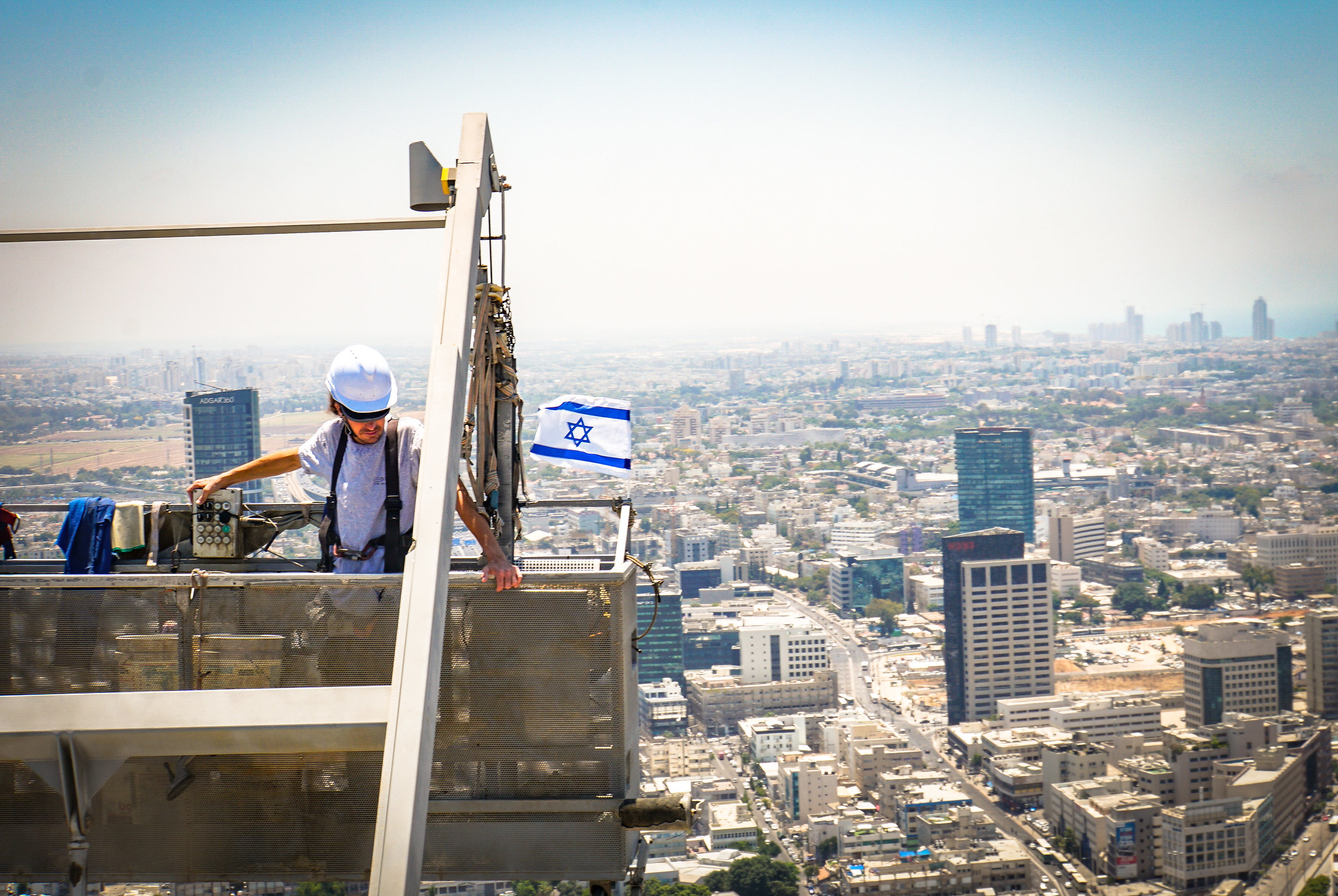
Palestinians made up 65-70 percent of the workforce in Israel’s building industry. This explains why Israel’s construction sector has asked the government to allow 100,000 workers to be hired from India to replace the Palestinians – who are now suffering the loss of jobs and income on top of everything else.
An article titled, ‘Half Israel’s construction sites shut down’, outlines the impact this is having:
“The paralysis of the construction industry is liable to bring in train substantial damage to the whole economy. According to estimates by the Ministry of Finance presented to the Knesset Special Committee on Foreign Workers last week, the industry will lose NIS 2.4 billion product a week, and, since the current situation is expected to continue in the coming months, up to 3% of national annual GDP could be lost.”
A similar situation is being faced by the agriculture sector, which has traditionally relied on thousands of Palestinian workers, together with Thai migrants, to work the land and harvest the crops.
The lack of workers has now left unpicked fruit and vegetables rotting in fields. Yuval Lipkin, deputy director general of Israel’s Agriculture Ministry, explained to Reuters that, “Israel’s agriculture is in its biggest crisis since the establishment of Israel.” This is being felt in ordinary people’s daily lives, with spiralling prices of basic foodstuffs.
Israel’s high tech sector is another example. It is the most productive sector of the economy, employing around 12 percent of the overall workforce, producing 18 percent of gross domestic product, and accounting for roughly 50 percent of Israel’s exports. Now, tens of thousands of high tech workers have been called up.
On top of this, there is the problem of the 200,000 Israelis who have been internally displaced after the evacuation of people living near the Lebanese and Gaza borders. They have had to abandon their jobs, while those who are self-employed risk seeing their livelihoods destroyed. And according to the Israeli Population and Immigration Authority 470,000 Israelis have left the country since the 7 October attack, that is 5 percent of the overall population!
According to the Ministry of Labour back in November, the total number of those taken out of the labour market because of the war – either called up into the army, displaced, or left idle because work in their sectors has been interrupted – was estimated to be 18 percent of Israel’s workforce.
According to Israel’s Central Bureau of Statistics, some industries have seen a fall of more than 70 percent in their revenue, with smaller businesses being the hardest hit. Many have gone bankrupt or face the threat of having to close down. There is much criticism from this layer towards the government’s policy. They feel the government is not doing enough to help struggling businesses. This also explains the recent de-mobilisation of several thousand soldiers in an attempt to alleviate the pressure on the economy.
Economic slump, inflation and poverty
According to the Bank of Israel, the economy contracted by around 2 percent in the last quarter of 2023, while consumer spending has been down since the 7 October attack.
On top of all this, there is the growing cost of the war itself, which has so far reached a figure of about $60 billion. That is equal to the annual military budget of the United Kingdom for the whole of 2023. But UK GDP was around $3.2 trillion last year, while Israel’s was $520 billion. Thus, Israel has spent in just three months what the UK normally spends in a year, despite having a GDP just one sixth the size of that of the UK. Israel’s National Government Debt stands at close to $300 billion. The present war is adding significantly to that figure.
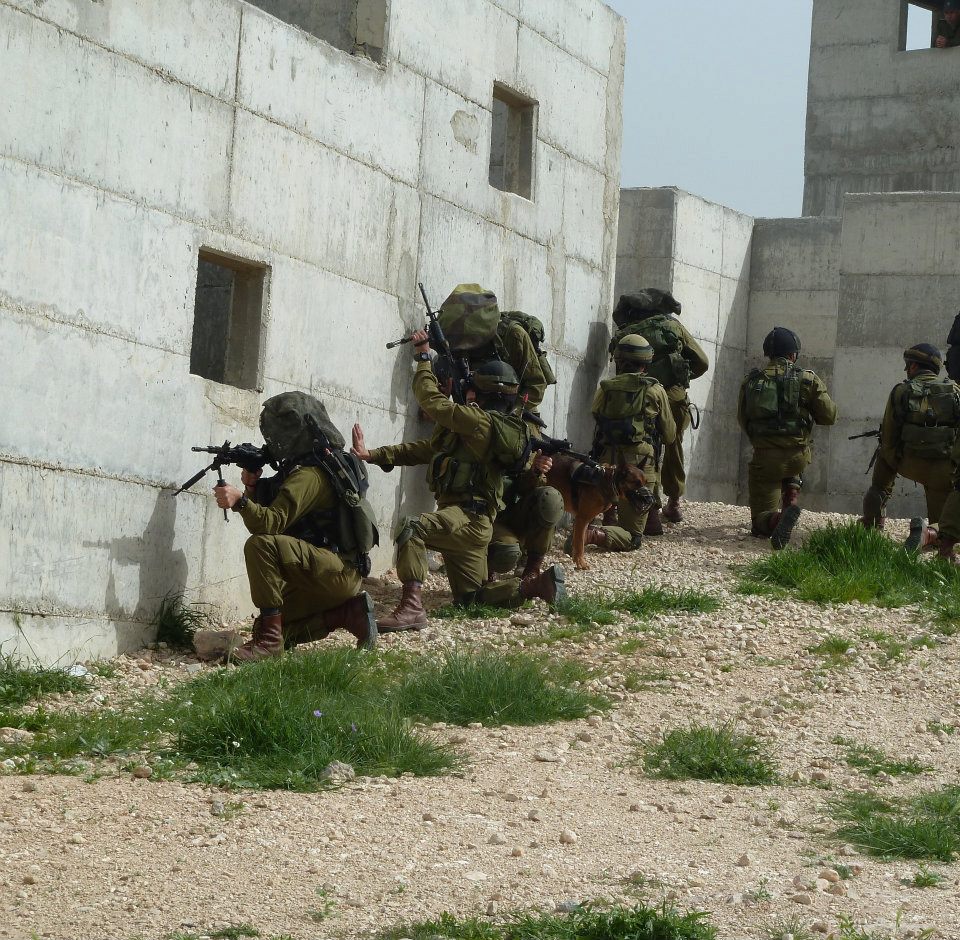
The Israeli government recently amended its 2024 budget, adding an extra $15 billion in spending, mostly to finance the war and to provide compensation to those adversely affected by the present situation. But if the war continues, as Netanyahu has repeatedly insisted, this figure may have to be amended several times over.
It is true that Israel has an advanced economy, and it entered this war with $200 billion in reserves. But the longer the war goes on, the more it is eating into these reserves. If the war escalates into an all-out conflict with Hezbollah in Lebanon, into the West Bank and beyond, the cost could double or even triple. Serious analysts are saying that the economic impact inside Israel could be unlike anything the country has experienced in decades.
Before 7 October, Israel’s annual budget deficit for 2023 was expected to be just 0.9 percent of GDP. But the amended budget for 2024 has significantly increased defence spending, while imposing cuts on much civilian spending, pushing up the predicted deficit to 6.6 percent of GDP.
A global slowdown in the world economy, aggravated by the hikes in interest rates, had seen inflation slowly coming down in Israel. Now, however, the Bank of Israel has expressed concerns that inflation could start to rise again due to the effects of the war.
Food price inflation has been particularly high, affecting the 1.4 million people (14.5 percent of the population) who suffer from food insecurity even in ‘normal times’. According to a Times of Israel article, 20 percent of Israel’s agricultural land is located near the Gaza border, and a further 10 percent is near the northern border with Lebanon.
As the article explains:
“Countrywide, around 40% of the agricultural workforce (30,000 people) has been lost. Foreign workers, largely from Thailand, went home after the war began, while Palestinians are not presently allowed to enter the country.”
And this has had an impact on the price of some basic food products:
“In the first week after the outbreak of war, tomato prices rose by about 50%, and by December the wholesale price was still 33% higher than it had been just before the war, the report said. The price of cucumbers increased by about 90% during this time. The price of potatoes rose by about 40% in the first two weeks of the fighting, and by December the wholesale price was still about 20% higher than the prewar price.”
This is hitting the poorer layers of Israeli society, Israel already being one of the most unequal high-income countries in the world. The top 10 percent earn 19 times more than the bottom 50 percent of the population. This particularly affects Palestinians who have Israeli citizenship, as they make up two-thirds of those suffering from food insecurity. But a layer of the Jewish population has also been affected.
Netanyahu, Hamas and major security failure
As we can see, Netanyahu has obviously failed many people in Israel, particularly the ordinary working people of the country and small businesses. He has tried to portray himself as the man who can make the Jews of Israel feel safe. And he has failed abysmally on this front also.
It is common knowledge that, for years, he promoted a policy of keeping Hamas in power in Gaza. Why? Because in this manner, Gaza and the West Bank remained politically divided. A divided Palestinian people was seen as the best way of pushing back on any idea of Palestinian statehood.
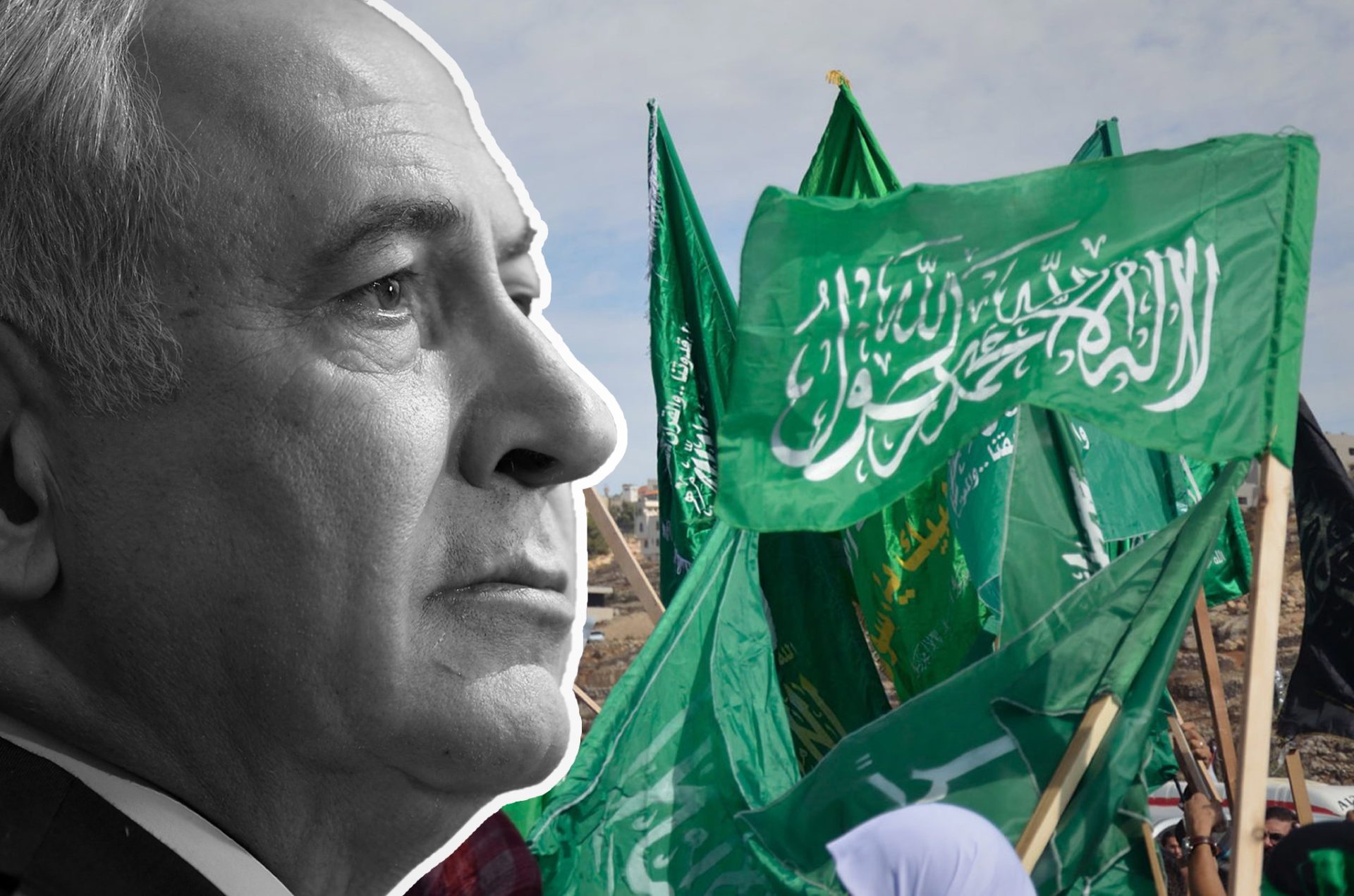
An interesting piece on this question was published in December by the New York Times, ‘“Buying Quiet”: Inside the Israeli Plan That Propped Up Hamas’. The article explains that, “For years, the Qatari government had been sending millions of dollars a month into the Gaza Strip — money that helped prop up the Hamas government there. Prime Minister Benjamin Netanyahu of Israel not only tolerated those payments, he had encouraged them.” The article goes on to outline the thinking behind this policy.
A more recent article that appeared on the BBC website, ‘They were Israel’s ‘eyes on the border’ – but their Hamas warnings went unheard’, based on interviews with young, female Israeli soldiers who were stationed in the Israeli military’s observation posts near the Gaza border, is very revealing. It was their job to report on any suspicious movements across the perimeter fence. The article reports that, “In the months leading up to the 7 October attacks by Hamas, they did begin to see things: practice raids, mock hostage-taking, and farmers behaving strangely on the other side of the fence.”
These observations were reported to higher officials, but nothing was done about it. Other such warnings have been reported on since the 7 October attack, pointing the finger at Netanyahu himself.
Considering Netanyahu’s past record, it is credible that he may have been aware of an attack being prepared, but may not have realised how serious it would be. He probably thought that, considering the growing opposition he was facing on the home front, a minor attack would be useful as an instrument to whip up ‘national unity’ and distract attention from the many problems in Israeli society, not to mention his personal scandals.
The attack, of course, turned out to be far more serious than he had imagined, putting his role in the whole management of security in the spotlight.
Open conflict in the war cabinet
The tensions that run through the whole of Israeli society are being reflected in the open split in the government itself. The former military chief Gadi Eisenkot has called for elections to be held within months, and has accused the government of not telling the public the truth about the war in Gaza. In a televised statement he said, “we should say bravely that it is impossible to return the hostages alive in the near future without an agreement [with Hamas]”. He also raised the idea that the government should consider putting a stop to the fighting for a “significant” period to allow such a deal to materialise. This is in line with the Axios.com report quoted above.
Under this pressure, three key figures that make up this cabinet – Netanyahu, the Defence Minister Yoav Gallant (who Netanyahu attempted to sack but was forced to reinstate in April last year) and the former head of the Israeli military, Benny Gantz – are openly criticising each other in public. Relations between them have become so bad that there are reports that Netanyahu and Gallant are barely on speaking terms.
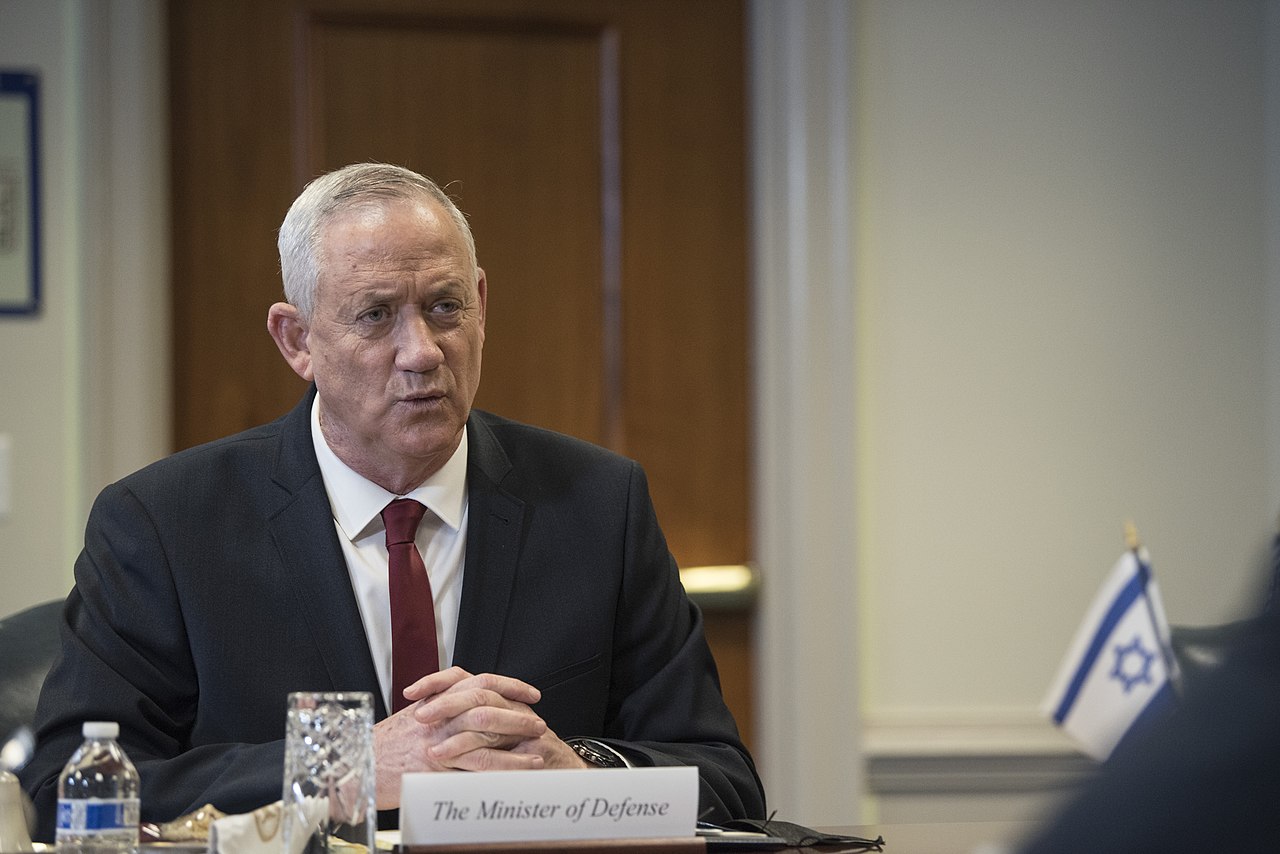
Two big issues are fomenting the division: whether Israel should begin negotiations to bring an end to the conflict, thus preparing the ground for the hostages to be freed; and how Gaza should be administered once the war ends. Gallant is pushing for the government to adopt a plan that envisages some kind of Palestinian self-administration in Gaza, combined with an international ‘peacekeeping’ force.
Gantz, expressing far more forcefully the pressure of the families of the hostages and the strong public opinion on this question, is pushing for negotiations with Hamas to get the remaining hostages freed. There are also divisions over how long to pursue the fighting in Gaza, whether to start winding down operations or whether to continue.
Biden is pushing the idea of a two-state solution. But what kind of state is he suggesting should be granted to the Palestinians? In his own words, “There are a number of types of two-state solutions. There’s a number of countries that are members of the UN that… don’t have their own militaries.”
This would therefore be a state without an army of its own – without any ‘armed bodies’, one that could never resist the Israeli army coming in whenever the Zionist ruling class deems it necessary, a ‘state’ that could never resist future bombings like the present butchery taking place. This is more or less a rehash of the discredited Palestinian Authority, i.e. it is not a state at all.
Up until very recently, Netanyahu, together with his more far-right friends in the cabinet, had been resisting the pressures to move towards some kind of negotiated deal with Hamas. On Thursday he stated he would “continue the fight with full force” until “total victory over Hamas”.
And in reply to Biden, he has stated that he is opposed to any kind of “two-state solution”, even the non-state the US Administration is suggesting, and that he would settle for nothing short of “full Israeli security control of all territory west of the Jordan River”.
The western imperialists don’t seriously believe in a two-state solution, but they must continue to pay lip service to the idea that they are committed to a future Palestinian state (of some description) in order to legitimise their full backing for Israel. Although, even they are split, with the likes of Trump taking a more belligerent position. By openly renouncing such an outcome, Netanyahu has placed the likes of Biden and the EU in a very embarrassing position.
The open conflict right at the top of the Israeli government reflects the more longstanding conflict within the ruling class, which led to last year’s constitutional crisis, but it has been greatly sharpened by the war.
Fighting to stay in office
Netanyahu has had one main objective throughout this whole crisis: to stay in office at all costs. He has done nothing for the lower income layers of Israeli society, either Jewish or Palestinian. But in an attempt to ‘unite the nation’, or at least the Jews of Israel, he has ratcheted up the Zionist propaganda and has leant ever further to the far right.
That explains why he has so many ultranationalist and ultra-orthodox, extreme right-wing Zionists in his cabinet, such as Ben-Gvir, who heads the far-right Jewish Power Party; or Smotrich, who heads the hardline Religious Zionism Party, both of whom are illegal settlers in the occupied West Bank, and have never made a secret of their extreme racist views. Both have been trying to provoke an escalation with the final aim of the expulsion of the Palestinians from East Jerusalem and the West Bank. Under Netanyahu, they have been given plenty of opportunities to pursue their aims.
According to a recent poll, however, only 15 percent of Israelis think Netanyahu should stay in office after the war in Gaza ends. And if elections were held today, his party, the Likud, would win only 16 seats, down from the 32 seats in the 120-member Knesset that it presently holds. His coalition as a whole would secure just 45 seats, compared to the thin 64 seat majority it has at present.
The Likud would do somewhat better if Netanyahu were no longer the party leader, although it would still fall back significantly. Meanwhile, Benny Gantz’s National Unity party would triple its seats from 12 to 37, and a coalition around Gantz would emerge with a strong majority in the Knesset.
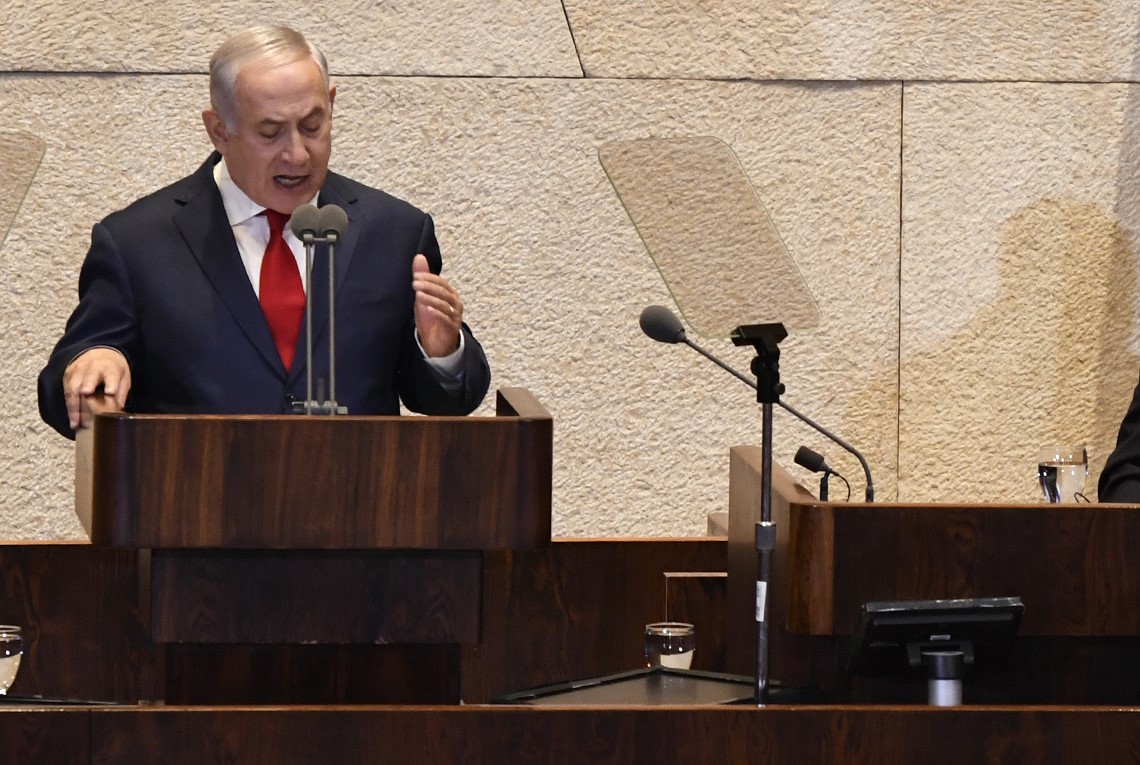
Netanyahu is therefore very conscious of one fact: once the war ends, and elections are called, his political career is over. There has been growing criticism from within the Zionist camp itself. The military commentator Amos Harel, writing in Haaretz, considered a liberal newspaper, has stated that: “It is no longer the good of the country Netanyahu is thinking about, but his own political and legal salvation.”
He has been charged with bribery, fraud, and breach of trust in court cases that have been brought against him. It is clear that he has one wing of the ruling class working against him, as we saw last year during the huge street protests against his government.
Netanyahu knows his days are numbered. That explains why he has been dragging out the war. He desperately needs some kind of military achievements to boast about, in an attempt to claw back some of the support he has lost. The provocative assassination of Hamas’ second-in-command in Beirut, the killing of a high-level Hezbollah commander in the south of Lebanon, and the targeting of Iranian officials in Syria, are all clearly part of this strategy.
This also explains why he keeps pushing back against US imperialism, who have shown concerns that the present war could escalate. Netanyahu knows full well that Israel is the only real stable ally of US imperialism in the region. And he also knows that, whatever he does, the US government will have to back him, even if he provokes an escalation of the war.
As we have seen, Netanyahu has failed ordinary Jewish people living in Israel on many fronts. His policies are plunging Israel into a deep economic crisis. People are at risk of losing their jobs and their businesses. The 7 October attack exposed the fact that the Israeli security forces are not the invincible, all-powerful, all-seeing body that they are presented as, capable of guaranteeing the safety of Jewish people in Israel. Netanyahu’s role in all these crises has been placed in public view for all to see. He has also failed the families of the hostages.
This does not mean that there is mass opposition to Netanyahu’s war on Gaza. All opinion polls show that the overwhelming majority of Jews in Israel support the war. In one recent poll, 87 percent of Israeli Jews expressed support for the idea that Hamas should be destroyed. A huge section of the population feels unsafe after the 7 October attack, and the Zionists are exploiting this mood to the full. It is also true, however, that a significant layer is unhappy with the way Netanyahu has managed the whole situation, and especially the question of the release of the hostages. All this will become even more evident once the war is over.
What has kept Netanyahu in office so far has been the war. But things can turn into their opposite as all the contradictions come to the surface, especially as it becomes clearer that Netanyahu cannot achieve his objectives. Sooner or later, this war must end. When it does, Netanyahu will be removed and he could be sentenced in the courts. All these factors explain why he has an interest in provoking greater and greater conflict, pushing Israel closer and closer to the abyss, and spreading the war to other fronts.
On Monday 15 January, the IDF withdrew several divisions from the Gaza Strip, and moved a special unit from there to the West Bank. According to Haaretz, IDF officials describe the situation there as “being on the brink of explosion”.
The risk of escalation was further highlighted by a recent statement by Israeli Chief of Staff, Herzl Halevi, speaking to Israeli soldiers, that “the chances of a war in the north are higher than ever”. Halevi added that the IDF “is increasing its readiness for a clash. We have learned many lessons from the fighting in Gaza, very relevant to the fighting in Lebanon, and there are some that need to be fixed.”
If open warfare were to break out on the Lebanese border, and within the West Bank, this would dramatically change the whole situation. The scenario discussed by many serious commentators of wider destabilisation throughout the whole region and the impact this would have on the world economy would become a reality.
Such a scenario would become a key factor in further destabilising the entire world situation. In times of severe economic crisis, the many unresolved national questions, responsibility for which lies on the shoulders of the imperialists, can explode with a vengeance. And the Palestinian national question is of a particularly acute character. The imperialists, in particular the US, have backed the Zionist elite of Israel for decades in their criminal oppression of the Palestinians. This is now coming back to haunt them as their system sinks deeper and deeper into crisis.

